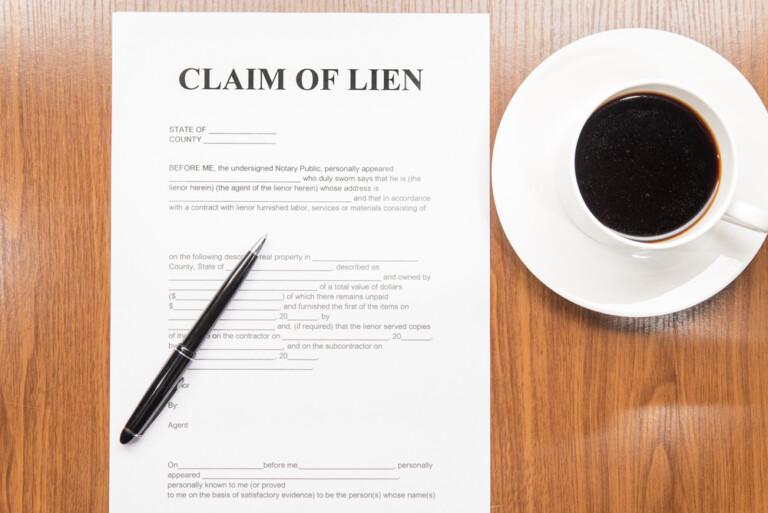
By Scott Lamb
Proponents of arbitration for construction disputes often cite the process as being superior to litigation in the courts because it is quicker and cheaper. The merits of that proposition are sometimes challenged, particularly with respect to mandatory arbitration and the consolidation of proceedings. In such circumstances, the benefits of arbitration in terms of efficiency and costs appear illusory and there is the significant risk of inconsistent results in multiple proceedings.
This issue was underscored in the recent case of Yellowridge Construction Ltd. v. Somatic HVAC Solutions Ltd. and the Board of Education of School District No. 41 (Burnaby), 2022 BCSC 2377.
In this case, the BC Supreme Court considered a petition brought by a general contractor, Yellowridge Construction Ltd., (“Yellowridge”) who was seeking to consolidate a number of notices to arbitrate commenced in connection with a project undertaken for the owner, the Burnaby Board of Education School District (the “School District”). The notices to arbitrate at issue related to disputes for various change order requests submitted by the subcontractor, Somatic HVAC Solutions Ltd. (“Somatic”).
Pursuant to the change order process in use for the project, the subcontractor, Somatic, was required to submit to the general contractor, Yellowridge, invoices for work and/or materials incurred in connection with any alleged change. Yellowridge would then submit those invoices to the owner, the School District, and to the project consultant who would make a determination as to whether the work or materials detailed a change to the project scope that should be compensated by an adjustment to contract price or time. Yellowridge would then communicate that decision back down to it’s subcontractors, including Somatic.
Somatic disputed two of the consultant’s findings regarding claimed change order requests and, as required by the terms of its contract with Yellowridge, Somatic issued two notices to arbitrate with respect to the same. Yellowridge issued matching notices to arbitrate to the School District pursuant to the terms of the CCDC contract between those parties.
Yellowridge sought to consolidate the four, separate, notices to arbitrate. Yellowridge argued that Rule 24.1 of the CCDC 40 permitted it to obtain a consolidation of arbitral notices. The court disagreed.
Rule 24.1 of the CCDC 40 provides that:
24.1 If:
- a common question of law or fact arises in more than one arbitration,
- the relief claimed in these arbitrations is in respect of or arises out of substantially the same factual situation, and
- the arbitrations are being conducted under these Rules,
a Party to any of the arbitrations may, by written notice given to each of the Parties to the arbitrations, request that the arbitrations be consolidated, conducted together or consecutively, or that one or more arbitrations be stayed until the completion of other arbitrations.
If any Party receiving a notice under Rule 24.1 disputes the consolidation, the Party seeking consolidation may refer the issue to the court under Rule 24.2 to determine if consolidation should be granted. This was the petition brought by Yellowridge, who sought to consolidate the four separate notices to arbitrate issued under the general contract and the subcontract, respectively.
The court denied Yellowridge’s request for consolidation, finding that it did not have jurisdiction to order the consolidation requested absent consent between the parties given the differences in the dispute resolution provisions in the general contract and subcontract.
As noted by the court, Rule 24 of the CCDC Rules for Mediation and Arbitration does not require that consolidation occur where the subject matter of the arbitrations is similar (which is an element of the test for joinder under the rules of civil procedure that apply to legal proceedings in the civil court). In response to a request for consolidation under Rule 24 of the CCDC Rules for Mediation and Arbitration, the court must also consider the specific contracts under which arbitration is sought. In this case, the general contract between the School District and Yellowridge and the subcontract between Yellowridge and Somatic contained dispute resolution provisions which were not aligned. In particular, Somatic’ s subcontract permitted it to ask for immediate arbitration, while the contract between Yellowridge and the owner permitted arbitration to be held in abeyance until substantial performance of the contract is reached. There also existed a real question as to whether or not Yellowridge had complied with all steps required by its contract with the owner in order to permit it to issue a notice to arbitrate.
The result is that all notices to arbitrate were ordered to proceed independently.
Takeaways
Parties to a construction contract should carefully consider the dispute resolution provisions that apply to its contracts on a construction project. In particular, general contractors should make certain that the dispute resolution provisions they have with their subcontractors align with the dispute resolution provisions in place in the general contract. Parties to a construction contract should also carefully consider if they will require the right to consolidate a dispute under one contract with a related dispute that may arise under a separate contract, or, to have the ability to request that other parties join in the arbitration. Absent express language, this recent decision makes clear that consolidation or joinder of parties may not be available.
We recommend that all parties carefully consider the dispute resolution provisions when reviewing and negotiating their contracts. Otherwise the intent and purpose of using arbitrations for quicker less costly resolution to disputes may be illusory and there is the significant risk of inconsistent results in a multiplicity of proceedings.



